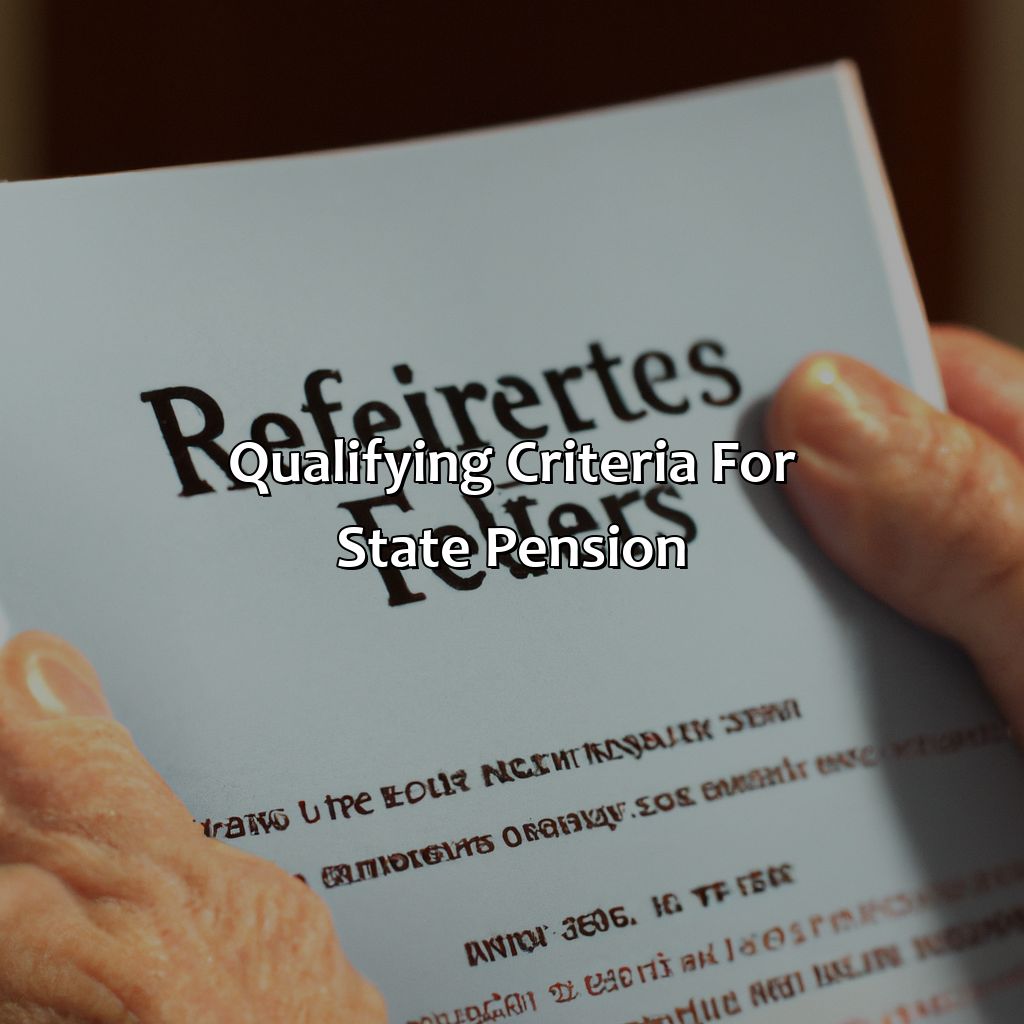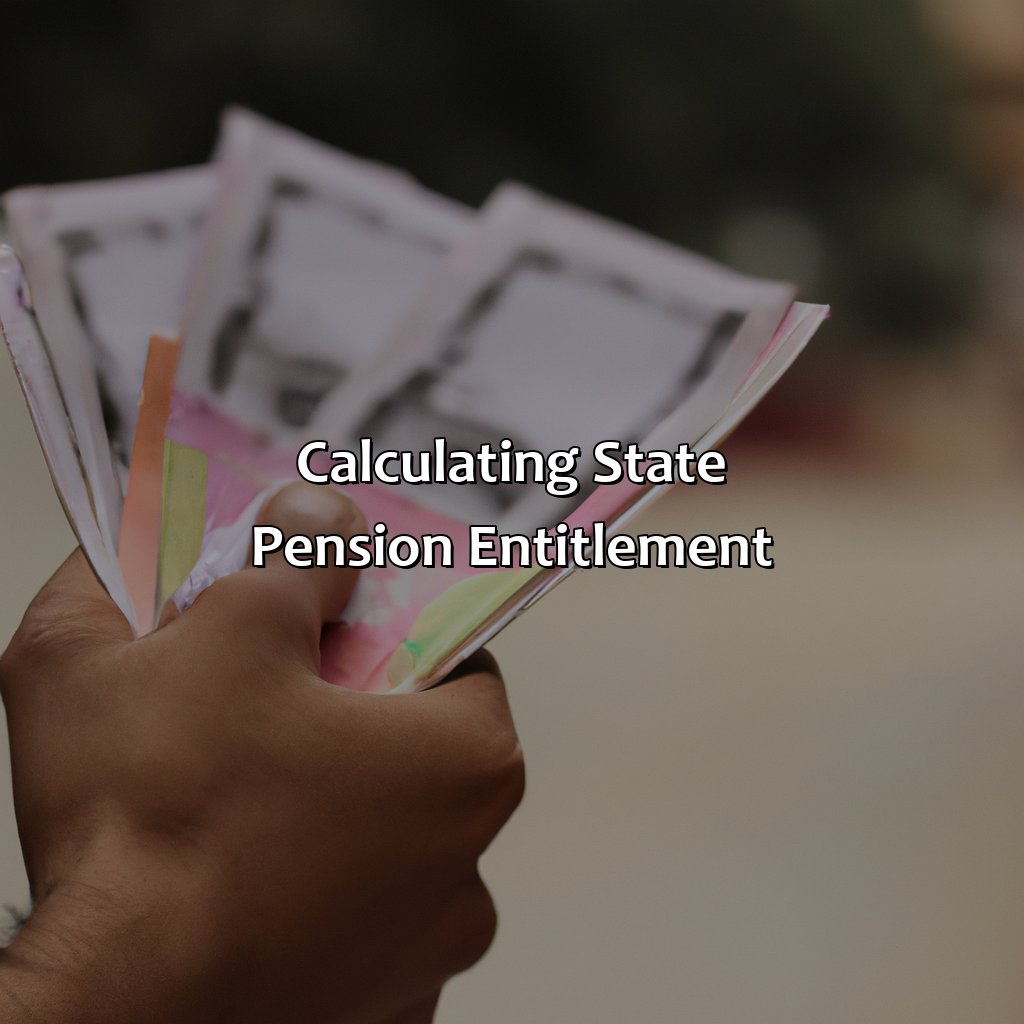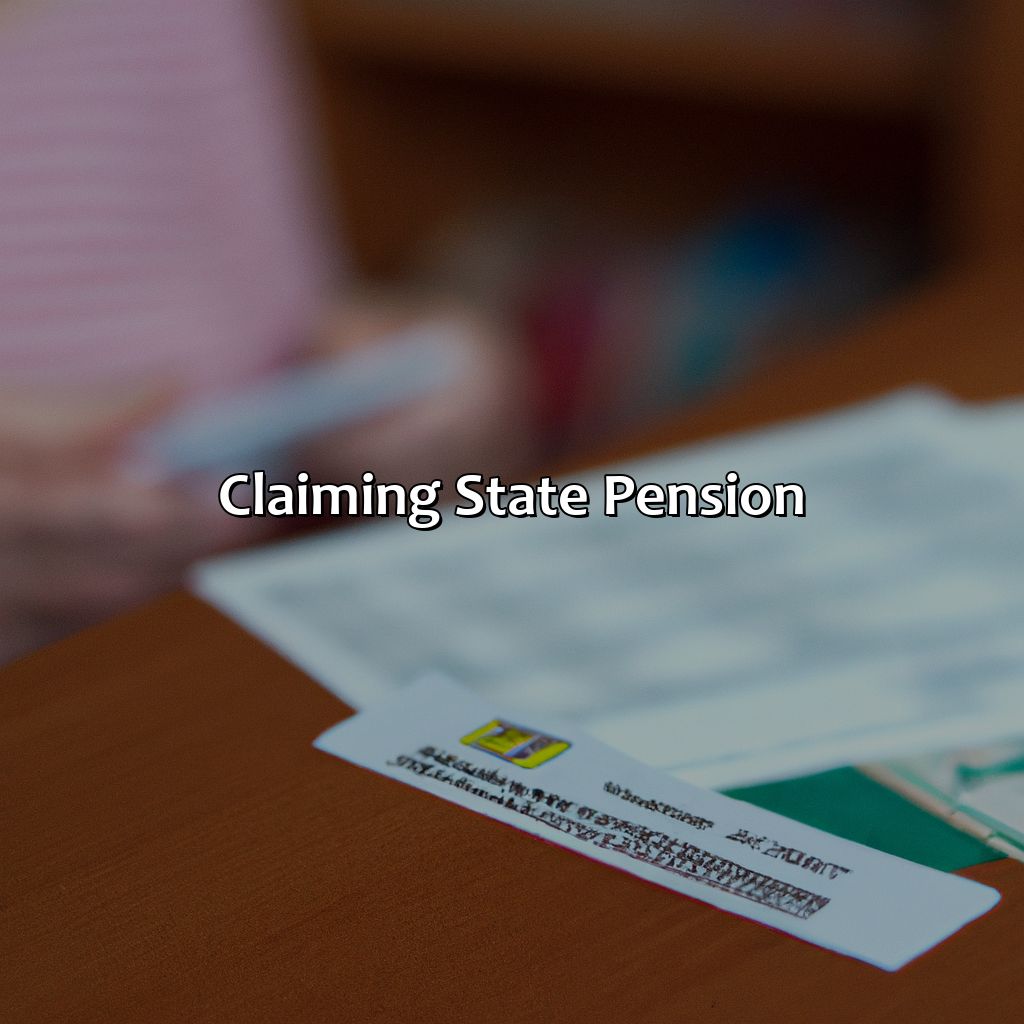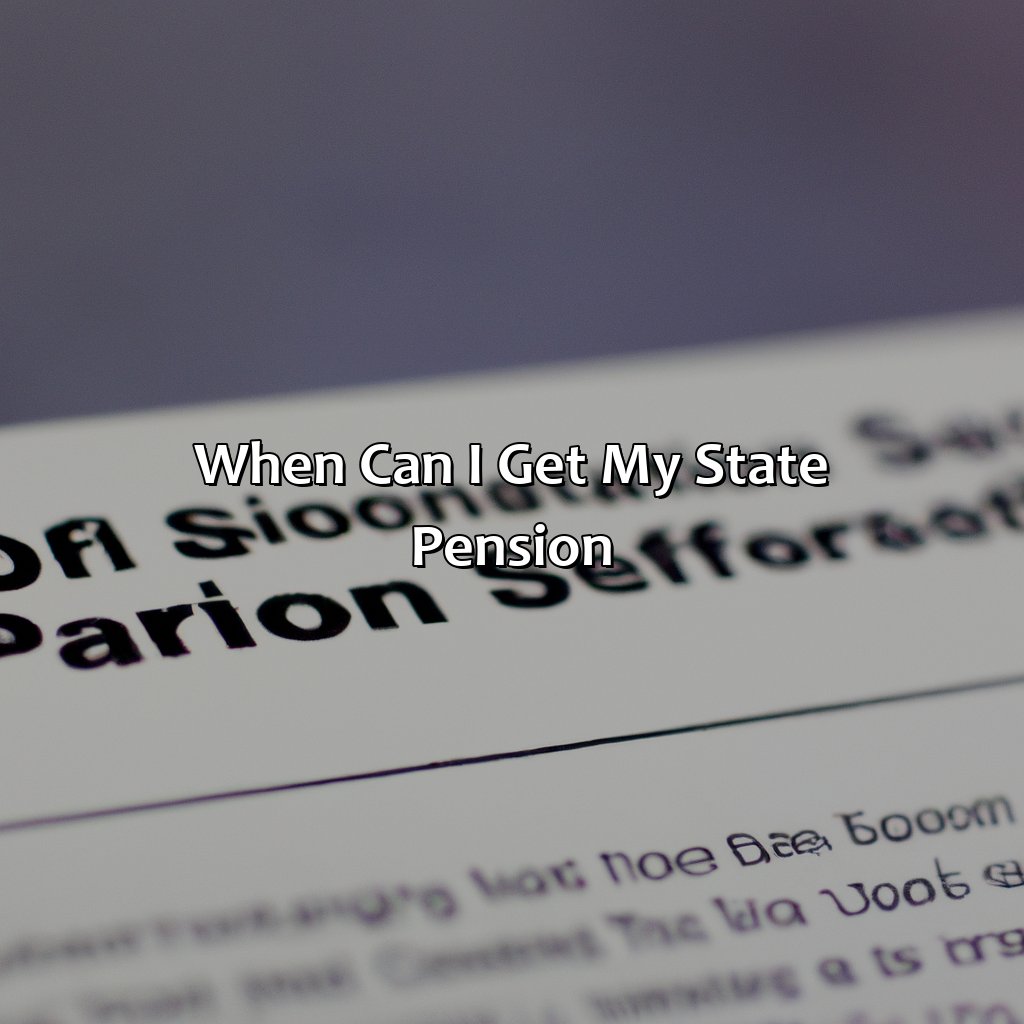When Can I Get My State Pension?
Key Takeaway:
- To qualify for State Pension, you must meet age and National Insurance contribution requirements. The age requirement is currently 66, but is set to increase in the future. National Insurance contributions are required for at least 10 years to be eligible for State Pension.
- The amount of State Pension you receive is based on your National Insurance contributions. To receive the full State Pension amount, you must have 35 years of National Insurance contributions. If you have less than 35 years, your State Pension will be reduced.
- To claim your State Pension, you must apply for it. You can choose to receive your payments weekly or monthly. It is important to understand your State Pension entitlement and claim it at the right time to ensure financial security in your retirement.
Unanswered questions about your state pension age can cause much worry and confusion. You may be wondering when you can start to receive your rightful pension and how much you will receive. This blog will provide the answers to these questions.
Qualifying criteria for State Pension
To get your State Pension based on your National Insurance record, you must pass certain criteria. In this part, we will talk about two categories:
- Age requirement for State Pension
- National Insurance contributions for State Pension
These will help you to know what you need to do to be able to claim your State Pension.

Image credits: retiregenz.com by James Jones
Age requirement for State Pension
The eligibility criteria for State Pension require you to reach a certain age before you can start receiving it. The age requirement varies and depends on your gender and date of birth. Men born before April 6, 1951, and women born before April 6, 1953, can claim their pension at the age of 65. However, if your birthday falls after these dates, the eligible retirement age increases gradually.
Furthermore, other factors may affect when you receive your State Pension, such as your National Insurance Contributions history, whether you have claimed any benefits previously or have opted for deferment. Also, keep in mind that if you want to delay claiming your pension beyond your state pension age, it can lead to an increase in your payments.
It’s essential to understand that claiming early retirement comes with its drawbacks while delaying the collection could lead to higher compensation. Thus it is recommended that individuals review their options carefully and make an informed decision about when they begin receiving their State Pension benefits. Additionally, planning finances ahead of time to supplement retirement income could be an excellent strategy for anyone looking to know how to collect pension early.
If you’ve been paying into National Insurance like it’s your own personal pension fund, congrats – you’ll soon be able to retire and spend your golden years worrying about something else entirely!
National Insurance contributions for State Pension
To receive a State Pension, you need to make National Insurance contributions. These contributions are calculated using complex algorithms that are constantly changing based on various factors such as age, income and employment status. Your eligibility for pension will depend on a variety of factors including the number of years you have contributed to National Insurance and your age when you claim.
In order to qualify for full state pension, women born before 6 April 1950 and men born before 6 April 1955 must have paid at least 30 years’ worth of National Insurance contributions. If you reached state pension age after this date, then the qualifying criteria is slightly different. The number of years required in each scenario often varies because of different work patterns. If you are wondering when should you apply for old age pension, it’s best to check with your local pension office for more information.
It is estimated that around one in three people reaching retirement age will not have enough qualifying years to receive a full State Pension. Hence, it’s important to understand what National Insurance Contributions are and how they contribute towards receiving a full state pension. If you’re a widow, you may be eligible for a widow’s pension. Here’s how to apply for it.
According to the government website, ‘Gov.uk’, “You may be able to pay voluntary contributions to fill gaps in your NI record if you’re eligible.” If you’re wondering how to opt out of pension, this website has some useful information.
If only calculating your Tinder matches was as easy as calculating your State Pension entitlement.
Calculating State Pension entitlement
Calculate your State Pension entitlement with your National Insurance record. Full State Pension and Reduced State Pension are two options. The Full State Pension depends on the number of National Insurance contributions you have made. Reduced State Pension applies if you don’t have enough contributions. Let’s learn more about the benefits of these sub-sections.

Image credits: retiregenz.com by James Jones
Full State Pension amount
Calculating your eligible amount for the State Pension can guarantee you a reliable source of income in retirement. The State Pension amount you receive depends on factors like your National Insurance contributions, your birth date, and whether or not you have made voluntary contributions.
To be entitled to the Full State Pension, you need to have paid sufficient National Insurance contributions for at least 35 years. However, if you were contracted out of additional state pension schemes or were working overseas during any part of your career, this may affect the total amount you will receive.
It is essential to keep an eye on your National Insurance record and check for any gaps that could affect your pension’s eligibility. If required, fill these gaps through voluntary contributions before reaching retirement age. This would ensure that you are eligible for the Full State Pension and claim as much as possible. Find out more about what the UK State Pension is.
In summary, if you are wondering how to get your pension from a previous employer, understanding the Full State Pension amount is crucial for retirement planning. Ensure that all necessary measures are taken to maximize pension entitlement through proper monitoring and consideration of contributing factors.
Looks like I’ll have to stick to stealing retirement homes from now on to make up for this reduced state pension amount.
Reduced State Pension amount
If you have not paid enough National Insurance contributions, you may receive a Reduced State Pension payment. Reduced State Pension payments occur when you do not meet the minimum requirements for a full State Pension. The reduction may be as high as 1/35th for every missing year, resulting in a smaller pension.
Additionally, if you want to know when does the state pension increase, if you have made voluntary National Insurance contributions but still fall short of the required threshold, you may still receive a reduced payment. It is essential to calculate your contributions to determine your entitlement accurately and avoid any surprises.
It’s crucial to remember that an underpaid pension can lead to financial struggles during retirement. Hence, it is highly recommended that you know your position and plan your finances accordingly. If you’re wondering when will you receive your state pension, it’s important to check your eligibility and the exact date you become eligible to claim.
Don’t lose out on important income in later life – seek professional guidance and use online calculators to determine if you’re eligible for reduced payments. By doing so, you can ensure that your future is financially secure.
Claiming your state pension is like a game of musical chairs, the longer you wait, the less likely you’ll get a seat.
Claiming State Pension
Know when you’re able to get your State Pension. How to apply? This article looks at the process for claiming your State Pension. We have two sub-sections:
- Applying for State Pension
- Selecting your State Pension payment options
Get all the info here!

Image credits: retiregenz.com by Harry Arnold
Applying for State Pension
The process of claiming your state pension can be initiated by submitting an application to the relevant authorities. To be eligible, you need to have reached the official age of retirement and have made enough National Insurance contributions over your lifetime. The exact date when you can start receiving your pension varies depending on your birthdate and gender.
It is advisable to apply for your pension at least 2 months before the desired start date, as processing time may take up to 8 weeks. Your application should include a few essential items, such as proof of identification, documents regarding employment history and any additional information requested by the government department overseeing pensions.
In some cases, you may experience delays in receiving your state pension due to administrative errors or disputes over eligibility criteria. In such situations, it is best to seek advice from a qualified professional who has expertise in handling pension-related issues.
A woman named Anne had been working all her life but was not aware that she was eligible for state pension until recently. When she contacted an advisor, they discovered that she could claim backdated payments amounting to thousands of pounds. It just goes on to show that seeking professional help can often lead to valuable insights!
Choosing how to get paid for not working has never been so exciting!
Choosing State Pension payment options
Once you are ready to claim your State Pension, there are various payment options available. These options allow you to choose how much and when you receive payments. You may opt for a regular payment or a lump sum amount that can be added to your bank account.
The first option is to take the State Pension regularly, every four weeks. You might prefer this if you want a steady income that could last the entire month. The second option is to delay the pension and increase its value by up to 1% for each nine weeks that you defer it. This could be an excellent choice if you have other sources of income or still working. Learn more about how to get a pension.
It is also possible to opt for retroactive payments, which cover the time between when you reach State Pension age and when your first payment arrives. However, it is essential to note that these payments must be claimed within three months of attaining pensionable age.
Don’t miss out on planning your pension payments in advance; check the eligibility and requirements of each option carefully before making any decisions. It’s worth noting that the method selected determines not only how much money you’ll get but also when and how often you will receive it. Learn more about buying a pension annuity to secure your future.
Five Well-Known Facts About When Can I Get My State Pension?
The state pension age is currently 66 for both men and women born after October 1954. (Source: gov.uk)
The state pension age is planned to increase to 67 between 2026 and 2028. (Source: gov.uk)
You need to have a certain number of qualifying years of National Insurance contributions to be eligible for the full state pension. (Source: gov.uk)
You can check your state pension age and estimated amount on the government’s website. (Source: gov.uk)
You can defer claiming your state pension if you want to receive a higher weekly amount in the future. (Source: Money Advice Service)
FAQs about When Can I Get My State Pension?
When Can I Get My State Pension?
Getting your state pension is dependent on a variety of factors, such as your age, your nationality, and how many years you’ve contributed to the National Insurance scheme. To find out when you can get your state pension, read on below.
What Is the Current State Pension Age?
The current state pension age is 66. It’s set to rise to 67 between 2026 and 2028, and further to 68 by 2046. These changes will affect people born after 6 April 1951.
What If I Want to Retire Earlier Than My State Pension Age?
If you want to retire earlier than your state pension age, you might be able to claim other benefits to help supplement your income until you reach state pension age. These benefits might include Universal Credit, Pension Credit, or support for mortgage interest.
How Many Years Do I Need to Contribute to the National Insurance Scheme to Get My State Pension?
You need to have 10 qualifying years of National Insurance contributions to be eligible for the state pension. However, you will need 35 qualifying years to receive the full state pension.
What If I Haven’t Contributed Enough Years to the National Insurance Scheme?
If you haven’t contributed enough years to the National Insurance scheme to receive the full state pension, you might be able to make up the difference through voluntary National Insurance contributions, Class 3 contributions, or by claiming National Insurance credits.
 Checkout this IRS Loophole
Checkout this IRS Loophole 
